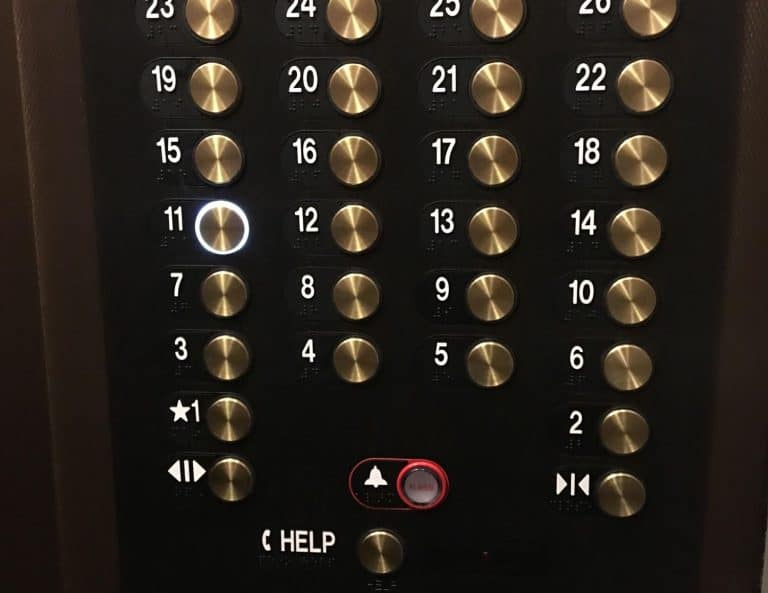If you’ve recently received a refund from a hotel and are wondering why, you’re in the right place!
If you’re short on time, here’s a quick answer to your question: Hotels may refund your money for various reasons, such as cancellation policies, overbooking, or unsatisfactory conditions.
In this article, we will explore the common reasons why hotels issue refunds, giving you a better understanding of the process and what to expect.
From cancellation policies to unexpected changes, we will cover the key factors that can lead to a hotel refund.
So, let’s dive in and unravel the mystery behind hotel refunds!
Cancellation Policies
Understanding hotel cancellation policies
Hotel cancellation policies are guidelines set by hotels to manage cancellations and refunds. These policies vary from hotel to hotel and can depend on factors such as the booking platform used, the type of reservation made, and the timing of the cancellation. It is important for guests to familiarize themselves with these policies before making a reservation to avoid any surprises or misunderstandings later on.
Free cancellation periods and penalties
Many hotels offer a free cancellation period, allowing guests to cancel their reservation without incurring any charges. This period typically ranges from 24 to 48 hours before the scheduled check-in time. However, beyond this period, hotels may impose penalties or charges for cancellations. These penalties can vary based on factors such as the timing of the cancellation, the length of the stay, and the type of reservation made. It is important to carefully review the specific terms and conditions of the reservation to understand the potential penalties.
Exceptions and special circumstances
While hotels have standard cancellation policies, they also understand that unforeseen circumstances can arise. In certain situations, hotels may make exceptions to their policies or offer alternative solutions. For example, if a guest is unable to travel due to a medical emergency or a natural disaster, the hotel may be willing to provide a refund or offer a rescheduling option. It is always worth reaching out to the hotel directly to explain your situation and inquire about any possible accommodations.
It is worth noting that cancellation policies can be subject to change, especially during times of unexpected events such as pandemics or natural disasters. It is advisable to stay updated with the latest information and guidelines provided by the hotel or the booking platform.
For more information on hotel cancellation policies, you can visit Booking.com’s cancellation policy page or Hotels.com’s cancellation policy page.
Overbooking
Have you ever experienced the frustration of arriving at a hotel only to be told that they have overbooked and there is no room available for you? Overbooking is a common practice in the hotel industry, and it occurs when a hotel accepts more reservations than it has available rooms. This is done to maximize occupancy and minimize the risk of empty rooms.
What is hotel overbooking?
Hotel overbooking is a situation where a hotel has accepted more reservations than it has available rooms. This can happen for various reasons, such as miscommunication between the hotel’s reservation system and its front desk, last-minute cancellations or no-shows, or even technical glitches. While overbooking may seem like a frustrating inconvenience for guests, it is actually a calculated business strategy for hotels.
How hotels handle overbooking situations
When a hotel realizes that it has overbooked, they are faced with the challenge of finding a solution that will satisfy both the guest and the hotel. Most hotels have policies and procedures in place to handle these situations. They will typically start by offering alternative accommodations at a comparable or better hotel nearby. If this is not possible, they may offer compensation, such as a refund or a discounted rate for a future stay. Hotels understand that customer satisfaction is crucial for their reputation and will do their best to rectify the situation.
Compensation and alternative accommodations
If you find yourself in a situation where a hotel has overbooked, you may be entitled to compensation. This can vary depending on the hotel’s policies and the severity of the inconvenience caused. Compensation can range from a full refund of your reservation cost to additional perks or amenities during your stay. Some hotels may also offer alternative accommodations, such as a nearby hotel or a room upgrade at no extra cost.
It is important to remember that each hotel may have its own policies and procedures when it comes to handling overbooking situations. It is always recommended to check the hotel’s website or contact their customer service directly for more information.
Unsatisfactory Conditions
When booking a hotel, we all have certain expectations in mind – a clean and comfortable room, friendly staff, and a pleasant overall experience. However, there are times when hotels fail to meet these expectations, leading to unsatisfactory conditions for guests.
When the hotel fails to meet expectations
There can be various reasons why a hotel may fall short of meeting expectations. It could be due to poor hygiene and cleanliness, uncomfortable beds, noisy surroundings, or unresponsive staff. Sometimes, the amenities promised during the booking process may not be available upon arrival.
Hotels have a responsibility to ensure that their guests have a pleasant stay, and when they fail to do so, it can lead to dissatisfaction and frustration. In such cases, guests have the right to express their concerns and request a refund.
Unresolved issues and guest satisfaction
Another common reason for hotel refunds is unresolved issues. This could include problems with the room, such as malfunctioning air conditioning or plumbing issues, that are not resolved in a timely manner. Guests may also encounter issues with the hotel’s facilities or services, such as broken equipment or lack of staff assistance.
When guests bring these issues to the attention of hotel management and they are not adequately resolved, it can greatly impact guest satisfaction. In such cases, hotels may offer refunds as a way to compensate for the inconvenience caused and to maintain a positive reputation.
Refunds as compensation for inconvenience
Refunds are often provided as a form of compensation for the inconvenience caused to guests. It is a way for hotels to acknowledge their shortcomings and make amends. By refunding the money, hotels aim to show that they value their guests’ satisfaction and are willing to rectify any issues that may have arisen during their stay.
In addition to refunds, hotels may also offer other forms of compensation, such as complimentary upgrades, free meals, or future discounts, to make up for the inconvenience caused. These gestures not only help to restore guest confidence but also demonstrate the hotel’s commitment to providing a positive experience.
It is important for hotels to address unsatisfactory conditions promptly and take appropriate measures to improve their services. By doing so, they can minimize the need for refunds and ensure that guests have a memorable and enjoyable stay.
Changes or Renovations
Changes or renovations are one of the common reasons why hotels may refund your money. Hotels are constantly striving to improve their facilities and provide better experiences for their guests. As a result, they may need to make changes to their rooms, lobby areas, or other amenities. These changes can range from simple upgrades, such as replacing furniture or repainting walls, to more extensive renovations, such as adding new features or expanding the property.
Unexpected changes or renovations
Sometimes, hotels may need to make unexpected changes or renovations due to unforeseen circumstances. For example, if there is a sudden plumbing issue that affects several rooms, the hotel may need to close those rooms for repairs. In such cases, the hotel may choose to refund your money if they are unable to provide you with a suitable alternative accommodation.
Impacts on guest experience
Changes or renovations can have a direct impact on the guest experience. During renovations, there may be noise, dust, or other inconveniences that can disrupt your stay. The hotel management understands that these disruptions can affect your overall satisfaction and may choose to offer a refund as a gesture of goodwill.
Refunds or alternative arrangements
When changes or renovations are expected to significantly impact the guest experience, hotels may proactively offer refunds or alternative arrangements. This could include relocating guests to another hotel within the same chain or offering a complimentary upgrade to a higher room category. By doing so, hotels aim to mitigate any inconveniences caused and ensure guest satisfaction.
If you find yourself in a situation where a hotel is refunding your money due to changes or renovations, it is important to communicate with the hotel staff to understand the options available to you. They can provide further information on the nature of the changes, the timeline, and any alternative arrangements that may be suitable for your needs.
Payment Errors
One of the common reasons behind hotel refunds is payment errors. These errors can occur due to various reasons, such as double charges and billing mistakes. It can be frustrating to see duplicate charges on your credit card statement after checking out of a hotel. Double charges can happen if there was an issue with the payment processing system or if there was a mistake made by the hotel staff during the billing process. In such cases, it is essential to contact the hotel and inform them about the double charge so that they can investigate the issue and provide a refund if necessary.
Discrepancies in payment processing
Discrepancies in payment processing can also lead to hotel refunds. These discrepancies can occur when there is a mismatch between the amount charged and the services received. For example, if you were charged for a room upgrade that you did not request or if you were overcharged for additional amenities, you may be eligible for a refund. It is important to carefully review your hotel bill and bring any discrepancies to the attention of the hotel staff. They will typically work with you to resolve the issue and provide a refund if necessary.
Prompt refunds for payment errors
Hotels understand that payment errors can happen and are usually quick to rectify the situation by providing prompt refunds. They value their customers and strive to maintain a good reputation for customer service. If you have experienced a payment error, reach out to the hotel’s customer service department or front desk as soon as possible. They will guide you through the refund process and ensure that your money is returned to you in a timely manner.
Conclusion
In conclusion, hotels may refund your money for various reasons, including cancellation policies, overbooking, unsatisfactory conditions, changes or renovations, and payment errors.
Understanding these factors can help you navigate the refund process and ensure a smooth resolution.
If you find yourself in a situation where a hotel refund is warranted, it’s important to communicate your concerns with the hotel staff or management to reach a satisfactory outcome.
Remember, each hotel may have its own refund policies and procedures, so it’s always a good idea to familiarize yourself with them before making a reservation.
Now that you have a better understanding of why hotels issue refunds, you can approach any potential refund situations with confidence and knowledge.






